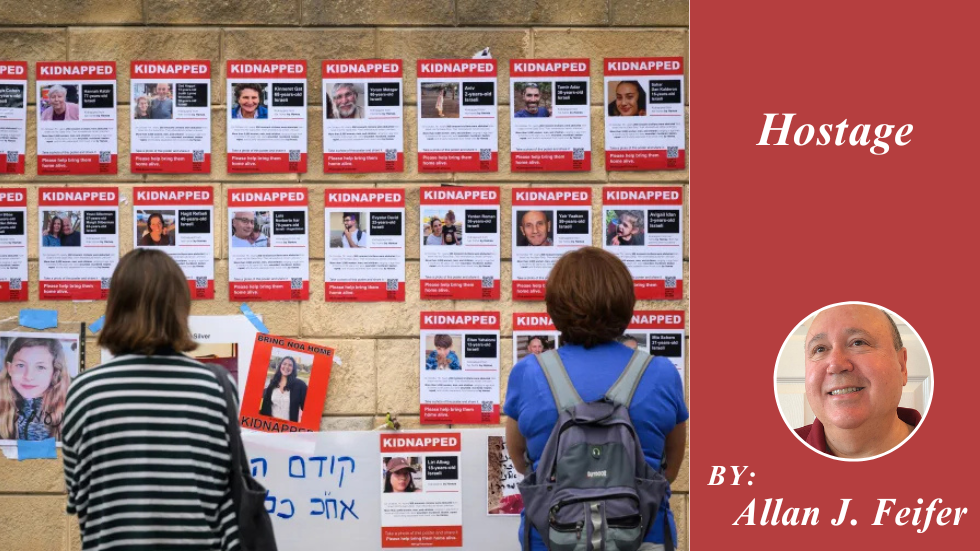As the first rounds of hostages released by Hamas parade across our TV screens, accompanied by shots of Hamas fighters enjoying a victory lap, what are we to think and believe? Whatever your next thought, it is likely incorrect. Hostage-taking, whether recently or as far back as America’s first overseas military adventures against the Barbary pirates or somewhere in between, reflects America’s waxing and waning policy towards hostage-taking. The only takeaway that terrorists can draw from America’s conduct since at least the 1970s is that hostage-taking is an effective, cheap, and ultimately successful way to conduct asymmetric warfare.
America no longer has a well-defined core value system that reflexively reacts in response to attacks, as we historically did. Today, the harder we protect our people and assets, the more vulnerable we become to this specific form of terrorism. Operation Eagle Claw, also known as Desert One, was a failed military operation ordered by President Jimmy Carter in 1980 to rescue 53 hostages from the U.S. Embassy in Tehran, Iran. The mission occurred on April 24-25, 1980, and failed. In the following 21 months of his presidency, Jimmy Carter was reduced to a failed president, ushering in Ronald Reagan. It also marks the moment we gave terrorists power they still hold.
The 1970s saw a shift in the nature of hostage-taking, with terrorist organizations using it as a tool for political leverage, publicity, and relevancy. This period included notable incidents like the 1972 Munich Olympics hostage crisis and, again, the 1979 Iran hostage-taking.
Hostage-taking is both a business (think Somalia’s pirates) and, separately, an instrument of war. In order to put this into context, recall the U.S. government’s formal policy of not negotiating with terrorists established in the 1970s. This stance was reinforced over the years, particularly after the Iran-Contra affair in the 1980s, when the Reagan administration was heavily criticized for negotiating with terrorists to free American hostages.
Hostage Crisis: Will a New President End U.S. Ransom Payments?
There have been exceptions to this policy, such as the exchange of deserter Sergeant Bowe Bergdahl for five Taliban prisoners in 2014, which rightly drew significant criticism. Notably, six American soldiers died searching for Bergdahl. But, it would take a new President to explode hostage-taking and ransom payments. That president was Barak Obama, followed by his understudy, Joe Biden.
- Presidential Policy Directive (PPD-30): In 2015, President Obama issued PPD-30 ostensibly to improve the U.S. government’s response to hostage release situations. Importantly, it said nothing about how to reduce or eliminate the practice.
- Executive Order on Hostage Recovery Activities: In 2015, an Executive Order was issued to bolster efforts to bring hostages and wrongfully detained U.S. nationals home.
- Executive Order on Bolstering Efforts to Bring Hostages Home: In 2022, President Biden signed an Executive Order to strengthen efforts to address hostage-taking and wrongful detention. This order ostensibly imposed severe consequences on actors involved in these practices.
- U.S. Hostage and Wrongful Detainee Day: In 2024, President Biden proclaimed March 9 as U.S. Hostage and Wrongful Detainee Day to reaffirm the commitment to bringing American hostages home.
All of the above only had the effect of institutionalizing and ultimately creating an acceptance of hostage-taking as an instrument of policy positioned between diplomacy and war. The net effect has accelerated the tactic and normalized it in the eyes of much of the world. The penultimate moment when this became crystal clear was October 7, 2023, in Israel, when approximately 250 hostages were taken to Gaza, with about 94 (living and dead) still held just before the latest prisoner swaps. As of January 8, 2025, Hamas has released a total of 105 living hostages. The best estimates are that there may be another 55 still alive. This means of the original 251 hostages, about 90 either died in captivity for a variety of reasons or were brought to Gaza already dead. Add to this number the 1200 killed in the original attack and approximately 850 Israeli soldiers who have died in battle so far. The United States is deeply involved in negotiating with terrorists; there can be no doubt about the inevitable conclusion that even more hostages will be taken.
Take the Britney Griner fiasco. In December 2022, Russia and the United States conducted a high-profile prisoner exchange involving American basketball star Brittney Griner and Russian arms dealer Viktor Bout, who is tied to thousands of deaths. Griner had been convicted of drug charges in Russia and sentenced to nine years in prison. The sequence of events that preceded Griner’s detainment notably marks this incident as pure extortion by Russia. Bout is a personal friend of Vladimir Putin and an integral facet of Russia’s general territorial expansion. Griner was initially picked with the ultimate intention of seeing Bout exchanged for an American pop figure.
Hostage Release – A Trade or Strategic Move?
Viktor Bout, often referred to as the “Merchant of Death,” is a significant figure in international arms trafficking. His release was important to Russia for several reasons:
- Political Leverage: Bout’s release was seen as a diplomatic victory for Russia, showcasing their ability to negotiate and secure the return of one of their citizens and the corresponding weakness and limitations of American power.
- Public Perception: The exchange highlighted Russia’s commitment to its citizens, boosting national pride and demonstrating Putin’s willingness to go to great lengths to bring them home.
- International Relations: Booth’s release is now a template for future hostage-taking and repatriation. It has diminished America’s stature in the world.
Conclusion:-
No country is perfect. However, our propensity to walk down a path that virtually guarantees future hostage-taking, ever-larger demands for ransom, and extortionist demands will end predictably. It also toys with an unpredictable yet real possibility of miscalculation leading to escalation, future wars, and widespread death and destruction that can be avoided. Bowing to any form of terrorism, in this case, hostage-taking, only invites more of the same. Let’s return to the previous status quo that had America’s enemies realize that there was no benefit to hostage-taking but a lot of guaranteed blowback.
God bless America.
Allan J. Feifer—Patriot
Author, Businessman, Thinker, and Strategist. Read more about Allan, his background, and his ideas to create a better tomorrow at www.1plus1equals2.com



Recent Comments